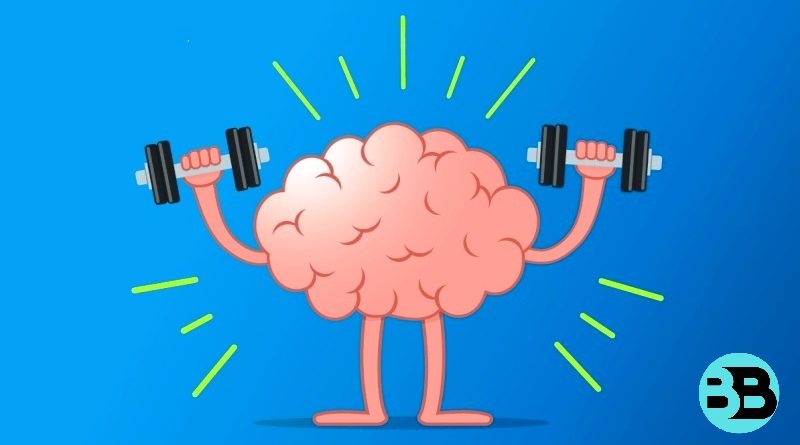Effective ways to promote and maintain good mental health.
Here are some effective ways to promote and maintain good mental health:
Regular exercise
Regular exercise Physical activity can help reduce symptoms of depression and anxiety, as well as improve mood and self-esteem. Exercise releases endorphins, which are chemicals in the brain that can reduce pain and promote feelings of pleasure and well-being.
Exercise can also help reduce stress levels. When you exercise, your body produces cortisol, a hormone that helps your body respond to stress. Regular exercise can help your body become more efficient at managing stress, reducing the negative effects it can have on your mental health.
In addition to the physical benefits, exercise can also boost self-confidence. Engaging in physical activity can help you feel more in control of your body and your life, which can have a positive impact on your overall mental health.
There are many different types of exercise you can try, from running and cycling to yoga and strength training. Aim for at least 30 minutes of moderate-intensity exercise most days of the week to reap the mental health benefits.
Good sleep hygiene

Good sleep hygiene is essential for maintaining good mental health. Getting enough quality sleep can help improve mood, concentration, and overall well-being. Here are some tips for promoting good sleep hygiene:
Create a relaxing bedtime routine: Take a warm bath, read a book, or practice relaxation techniques like deep breathing or meditation to help you wind down before bed.
Avoid electronics before bed: The blue light from phones, tablets, and computers can interfere with your body’s production of melatonin, a hormone that helps regulate sleep.
Make your bedroom a comfortable sleep environment: Keep your room cool, dark, and quiet, and invest in a comfortable mattress and pillows.
Limit caffeine and alcohol: Both can interfere with sleep quality, so it’s best to avoid them in the hours leading up to bedtime.
Remember, good sleep hygiene is an important part of maintaining good mental health. If you’re struggling to get enough quality sleep, talk to your healthcare provider. They can help identify any underlying conditions or factors that may be interfering with your sleep and provide guidance on how to improve your sleep habits.
Healthy diet:
Eating a healthy and balanced diet is important for maintaining good mental health. A diet rich in fruits, vegetables, whole grains, and lean proteins can provide the nutrients your brain needs to function at its best. Key nutrients like omega-3 fatty acids, B vitamins, antioxidants, complex carbohydrates, and probiotics have all been linked to improved mental health. On the other hand, a diet high in processed foods, sugar, and unhealthy fats can have a negative impact on mental health, increasing the risk of depression and anxiety. By focusing on a healthy, nutrient-dense diet, you can support good mental health and overall well-being.
Social support:
Social support is a crucial component of maintaining good mental health. Having a network of supportive friends, family members, or colleagues can help you manage stress, cope with challenges, and feel a sense of belonging and connection. Social support can also provide a source of encouragement, motivation, and accountability for taking care of your mental health. Whether it’s spending time with loved ones, participating in group activities, or seeking support from a mental health professional, building a strong social support network can help you feel more resilient and better equipped to handle life’s ups and downs.
Mindfulness practices:
Mindfulness practices are techniques that promote awareness and presence in the present moment, which can be beneficial for mental health. These practices involve paying attention to physical sensations, emotions, and thoughts without judgment or attachment. Examples of mindfulness practices include meditation, deep breathing exercises, yoga, and body scanning. Research has shown that mindfulness practices can be helpful in reducing symptoms of anxiety, depression, and stress, and improving overall well-being. Practicing mindfulness can also help individuals cultivate greater self-awareness, compassion, and resilience. Incorporating mindfulness practices into daily routines can support mental health and promote a greater sense of balance and calm in everyday life.
Professional help:
Professional help for mental health refers to seeking the guidance and support of licensed mental health professionals, such as psychiatrists, psychologists, licensed counselors, or social workers, to address mental health concerns. These professionals are trained to provide evidence-based interventions and treatments to individuals experiencing a range of mental health issues, including anxiety, depression, trauma, substance abuse, and personality disorders. Seeking professional help can be crucial in managing and improving mental health and well-being, as it can provide personalized care and support, help to identify and address underlying causes, and promote long-term recovery and resilience.
Remember, taking care of your mental health is just as important as taking care of your physical health.
Read also:
Do you know about Mental Health?
5 steps to mental wellbeing






Right here is the right blog for anyone who would like to understand this topic. You realize so much its almost hard to argue with you (not that I actually will need toÖHaHa). You certainly put a brand new spin on a subject thats been discussed for years. Wonderful stuff, just great!